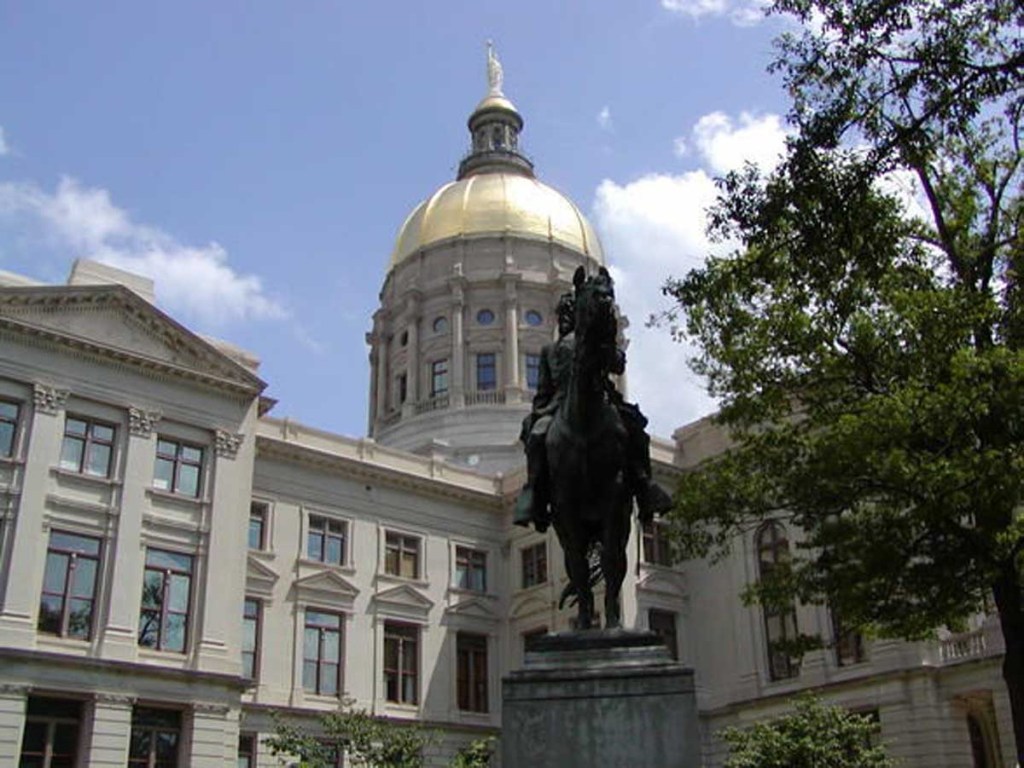State officer raises put strain on local departments in Georgia
Published 7:45 am Thursday, September 15, 2016

- Georgia State Capitol
ATLANTA — Pay increases — as modest as they were — seemed enough to keep deputies from leaving the Whitfield County, Georgia Sheriff’s Office for other jurisdictions, or from leaving the profession altogether.
And then Gov. Nathan Deal announced state law enforcement would receive a 20 percent pay increase, which amounts to about an $8,000 bump.
“Now, in a stroke of pen, they’re not competitive, especially with the state level,” said Mike Babb, who chairs Whitfield County’s commission.
Babb, along with other local officials and law enforcement leaders across Georgia, said they don’t begrudge the fact more than 3,300 state law enforcement officers will benefit from the increase, that will cost the state $79 million.
They do, however, dread the aftermath.
Several local officials said the salary hike will further complicate the constant struggle to attract and keep officers at the local level, where they argue the daily grind of police work takes place.
“The truth of the matter is, when you dial 911, you get a local police officer, a local deputy sheriff, local fire and EMS,” said Terry Norris, who heads the Georgia Sheriffs’ Association.
Deal also announced last week that the state would change how it trains the more than 57,000 sworn officers in Georgia, though many of those details will be worked out over time.
The governor’s proposal follows a spate of high-profile police shootings across the country, which Babb said adds another layer of complexity to the pay issue.
“It’s one thing to be low paid and respected,” Babb said. “It’s another thing to be low paid and be disrespected and criticized all the time.”
Some are looking to state lawmakers for help addressing the issue at the local level.
Chris Prine, sheriff in Lowndes County and a former state patrol officer, said he’d like to see state legislation that forces county commissions to examine pay scales for law enforcement.
Prine said his deputies start out making $34,471.
“I’m proud that they’re getting a 20 percent increase. They deserve it,” Prine said of state law enforcement.
“But, on the other hand, what our fight is, and I guess an argument with all the county commissioners all over the state, is trying to get more money for these deputies who risk their lives,” he added.
That kind of involvement from the state is unlikely, though.
“Whether local governments choose to enhance the salaries of their hard-working and brave officers is a local prerogative and the governor respects that,” Deal’s spokeswoman, Jen Talaber Ryan, said Tuesday.
Deal’s proposal, though, will no doubt loom large over local budget discussions.
There is also growing optimism among local law enforcement – Prine, included – that Deal’s proposal will have a ripple effect statewide.
State troopers – once among the lowest paid in the country – will now start out at $46,422. New agents with the Georgia Bureau of Investigation will be paid nearly $49,000.
Back in Whitfield County, deputies start out at $29,910. For their colleagues working in the county jail, that beginning salary sits at $28,953.
Both salaries grew by nearly $1,000 from last year when officers received one of only two pay increases awarded in the last eight years. Incentive pay for certain accomplishments, such as finishing a certification program, was also added.
The changes cost Whitfield County about $403,000.
A deputy’s pay in Whitfield County is on par with the rest of Georgia. The average starting salary for deputies is $29,900, according to a recent survey conducted by the sheriff’s association.
The average jail officer in Georgia tends to start out at $25,200.
“When over half your employees work part-time and secondary jobs to make ends meet, that should speak volumes,” said Whitfield County Sheriff Scott Chitwood.
Chitwood said he’s fully staffed, for now. The real challenge, he said, will come when he sees whether deputies start leaving once the pay hike takes effect at the beginning of the year.
A more significant increase for local law enforcement would likely mean raising taxes. Babb said addressing the issue “will be something of a discussion, but it’s not going to be an easy discussion.”
In Valdosta, residents will pay higher property taxes to help pay for salary hikes.
The city hired a firm to study its pay scales, which led to adding $2.4 million to the budget to increase salaries across the board.
About $500,000 will go toward raising police salaries. Officers there now begin their career at $37,000, which is a $4,000 bump.
Valdosta Police Chief Brian Childress said the adjustments have made news of a 20 percent salary increase for state officers far more palatable.
“I think it’s overdue. Law enforcement in Georgia are grossly underpaid,” he said.
City officials will fund the local salary adjustments through a millage rate increase, which will mean an increase of about $40 for someone who owns a $100,000 home.
“Either you pay them now or we continue to have turnover and you’ll pay them more later,” Childress said. “That’s what it boils down to.”
When officers leave, the money spent on training follows them, Childress said.
The state covers the tuition for the training academy, but local departments are left paying for food, their salary and other expenses while they are there. In Valdosta, new officers must also go through several more months of local training before hitting the streets.
Jill Nolin covers the Georgia Statehouse for CNHI’s newspapers and websites. Reach her at jnolin@cnhi.com.

